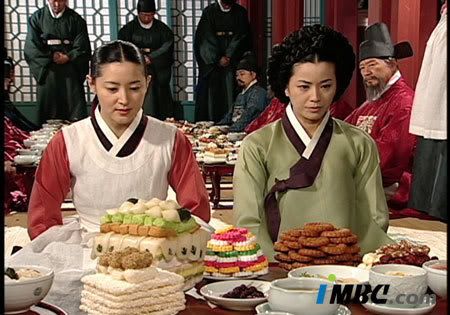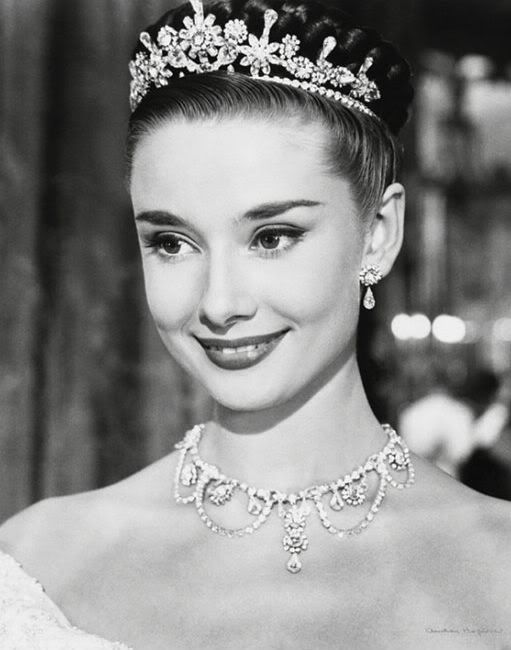
I recently purchased the booklet called Glossary of Objectivist Definitions, which includes definitions by Ayn Rand, Leonard Peikoff, and Harry Binswanger. Having a solid grasp of the meaning of the words one uses is obviously important. I thought it would be a good exercise to occasionally take one of the definitions, and then give an example of it in action, either in the real world or the world of art.
Here is the Glossary's definiton of integrity:
"Integrity" is loyalty in action to one's convictions and
values. (Glossary of Objectivist Definitions, p. 25.)
As given, this definition is open to misinterpretation. It leaves open the question of whether one's convictions and values are rational. Being loyal in action to irrational values is not an example of integrity. And as I suspected, when I turned to the original passage from which this definition was taken, the chapter on Virtues in Leonard Peikoff's Objectivism: the Philosophy of Ayn Rand, he does indeed qualify integrity to mean loyalty to rational values:
Like independence, integrity is a derivative of rationality and precludes any form of emotionalism. It does not mean loyalty to arbitrary notions, however strongly one feels they are true. Adolf Hitler acting faithfully to carry out his hatred of the Jews is not an example of virtue. Integrity means loyalty not to a whim or delusion, but to one's knowledge, to the conclusions one can prove logically. Like every other virtue, therefore, integrity presupposes a mind that seeks knowledge, a mind that accepts and follows reason. (Leonard Peikoff, OPAR, p. 261, paperback edition.)There are countless good examples of integrity in the Korean drama, Dae Jang Geum. Integrity is one of Jang Geum's distinguishing characteristics, which separates her from most other people of that time, or any other.
A good example that comes immediately to mind is an episode in which a high ranking Chinese envoy comes to visit the Korean King, and Lady Han and Jang Geum are chosen to cook for him. At first, they begin preparing the tastiest dishes a healthy man could wish for. The Head Eunuch had told them that: "We can't allow even a hint of fault in formalities or food. The senior envoy is a well known epicure in China. If it's not the best of delicacies, he won't even touch it. So show your best talent."
But then they learn that the Chinese envoy has diabetes, and is in poor health after his long journey. So Lady Han instead prepares the healthy foods, mostly vegetables, that are best for a diabetic, without telling the Head Eunuch.
When this food is served to the envoy, the Korean dignitaries are horrified, and so is the Chinese envoy. Lady Han tries to explain. Both she and Jang Geum believe that a cook's purpose is to prepare food that is both palatable, and proper for the person who will be consuming it. A diabetic must be served healthy food, even if he is too shortsighted to choose to eat it himself. "I dare to say the greasy food of Ming is very detrimental to his health."
The result of this conflict is that Lady Han is arrested and put in confinement until a decision is made on her ultimate punishment. In the meantime, Jang Geum steps in for Lady Han. Here she could, as most people would do, simply substitute some tastier, less healthy food for the Chinese envoy, which is exactly what he and the Korean dignitaries specifically order her to do. But she refuses. "We cannot possibly bring food that is harmful for the person."
In the face of threats of her own arrest, and very possibly being executed, Jang Geum insists on serving the same healthy food that Lady Han had planned to serve. The Chinese envoy is struck by her courage, but still does not want the healthy food. Jang Geum reasons with him, explaining that within as few as five days he will begin to feel better if he only eats the healthy food she plans to serve. Finally, the envoy agrees to eat it. But he does so with this proviso: "Will you receive any punishment I order - even if it means your life [if I am not satisfied with the food]?"
Jang Geum accepts the terms. She has confidence in her knowledge of food and its effect on a person's health, and more importantly, she refuses to go against her conviction that a cook must serve food proper to the person consuming it, in this case a diabetic.
Meanwhile, the Head Eunuch, who is generally a good person, but not as courageous as he might be, goes to Lady Han and asks her "How could you prepare such a meal?" He knows the envoy has diabetes, but is only concerned with giving him what he wants. Lady Han responds perfectly, by saying: "Then are you telling me to do the same thing to the King as well?" In other words, is he telling her that she should serve the King unhealthy food also, even if it kills him? The Head Eunuch is unable to respond to this point, because he knows Lady Han is right.
In stark contrast to the integrity of Jang Geum and Lady Han, their arch enemies, Lady Choi and Keum Young, begin preparing a feast of royal proportions for the Chinese envoy, confident that he will not be satisfied with the plain, healthy food Jang Geum will be serving. The meals Lady Choi prepares are the very greasy Ming dishes that are worst for a person with diabetes, but they are exactly the kind of foods that the Chinese envoy enjoys eating.
After the five days of eating Jang Geum's healthy food are up, Lady Choi immediately serves the envoy her lavish meal of tasty - but unhealthy - dishes. The envoy samples several of the dishes and is obviously delighted with their taste. Lady Choi smiles, anticipating a decisive victory over Lady Han and Jang Geum. But then the envoy stops eating her food, and says that although it is very tasty, he now realizes the healthy food is the better choice. He does indeed feel better after five days of Jang Geum's healthy food, which she managed to make tasty enough to satisfy the finicky envoy.
So Lady Han is realeased from confinement, Jang Geum is praised for doing the right thing (by all the same people who would have condemned her, if she had not satisfied the envoy), and Lady Choi is mortified by her loss of face. The actions of Lady Han and Jang Geum are a perfect example of loyalty in action to one's convictions and values, a perfect example of integrity.
And that example could be multiplied by anyone who watches Dae Jang Geum, for Jang Geum, along with Lady Han, Lady Jung, and Min Jeong Ho, are all heroic characters distinguished for their integrity throughout their entire lives.
[Edited 09-01-2008]



